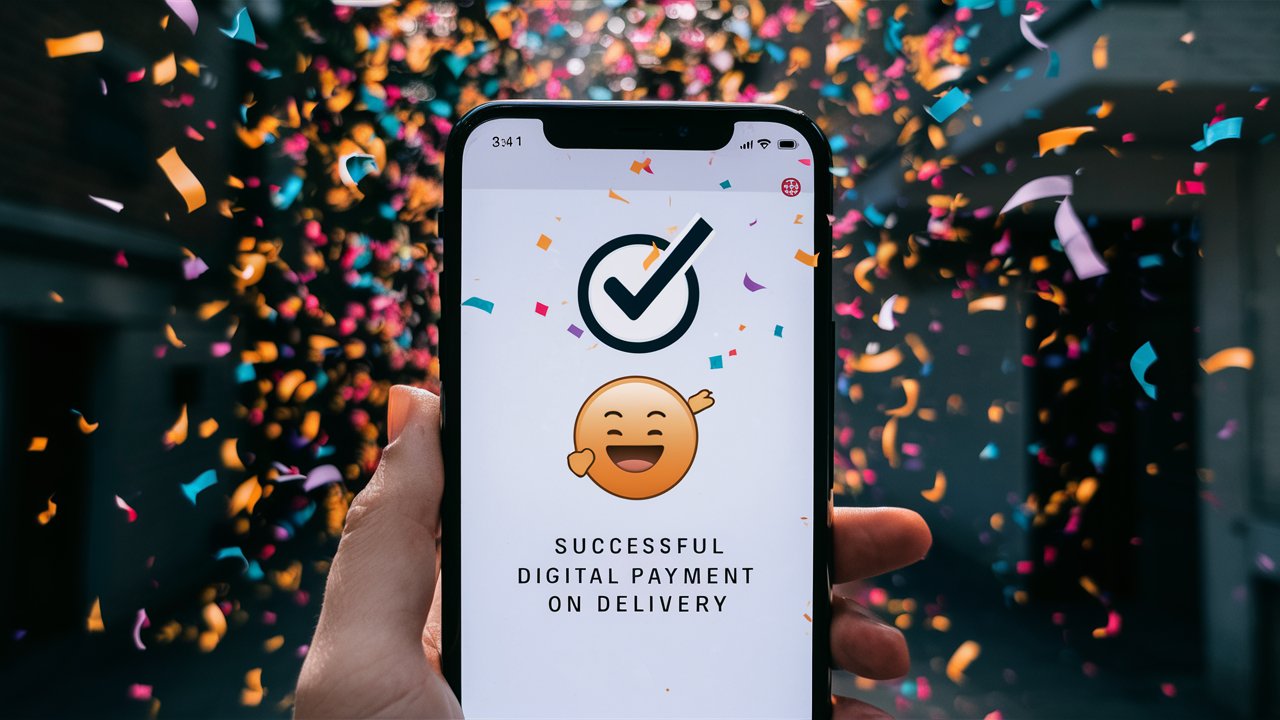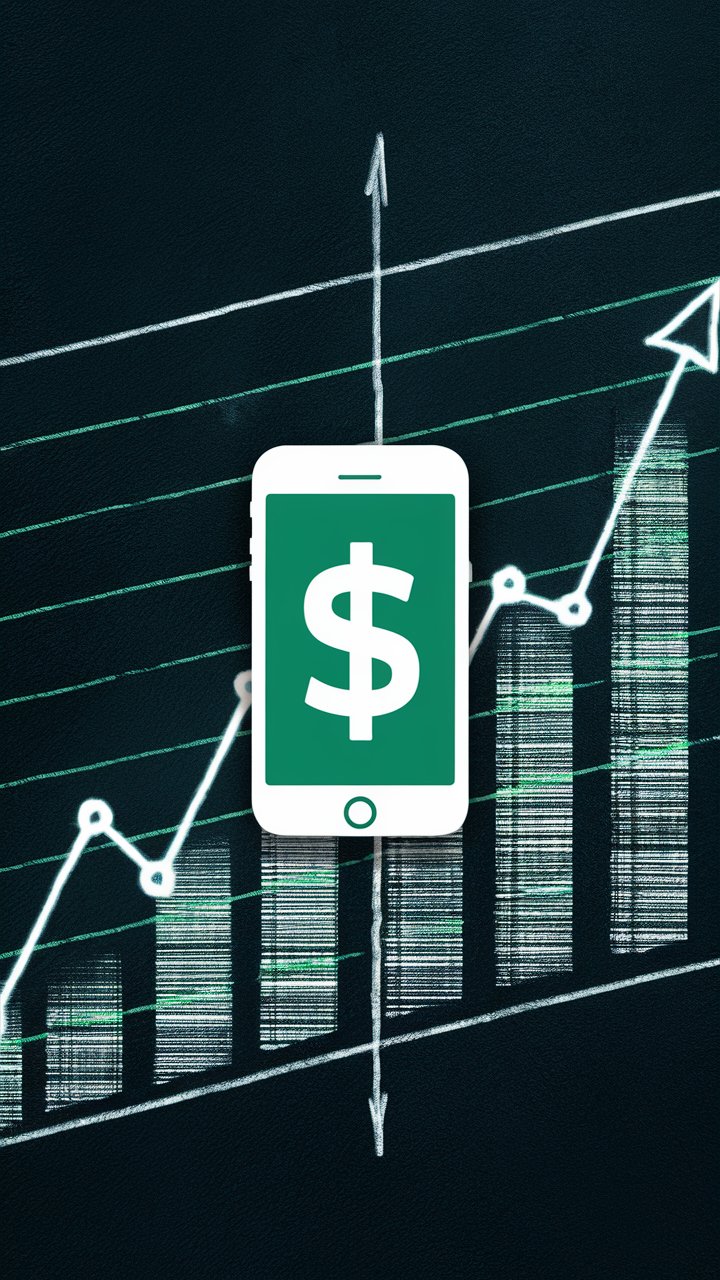Affiliate Disclosure: This blog post contains affiliate links. This means I may receive a commission if you click a link and purchase something without any additional cost to you. However, this does not influence the content of this post. I recommend products that I believe in and trust will be helpful to my readers.
In the dynamic landscape of today’s e-commerce landscape, customer expectations reign supreme. Gone are the days when a single payment method sufficed for a small business. Today’s savvy shoppers demand a diverse array of options to seamlessly complete their purchases. For small business owners, navigating this ever-evolving terrain of payment solutions can be a daunting task. Transaction fees, security concerns, and catering to customer preferences are just a few factors demanding careful consideration. This blog post delves into the world of payment methods for small businesses, with a particular focus on Digital Payment on Delivery (DPOD), a rapidly emerging trend poised to revolutionize the online payment landscape. We’ll not only explore the pros and cons of various payment options but also delve into a compelling case study of Poppayai.com, a leading DPOD provider, to illustrate the practical benefits of this innovative approach.
Understanding Your Audience: A Multifaceted Approach to Small Business Needs
The key to recommending the most suitable payment methods lies in understanding the diverse needs and priorities of small businesses. Here, we’ll dissect three distinct small business personas, each with unique payment processing requirements:
The Brick-and-Mortar Boutique: This entrepreneur operates a charming local store with a loyal customer base. Their primary focus lies in facilitating in-person transactions, but they also recognize the value of offering some online options for added convenience. Security and user-friendliness are paramount for this business owner.
The E-commerce Entrepreneur: This individual thrives in the digital realm, running a thriving online store without a physical location. A robust online payment processing system that seamlessly integrates with their e-commerce platform is a non-negotiable. This system must accept major credit cards and offer robust fraud protection measures to ensure the security of both the business and its customers.
The Service Provider: This freelancer or contractor provides services directly to clients. Their ideal payment system needs to be flexible, enabling them to create invoices and accept online payments while also catering to clients who prefer traditional methods like cash or checks.
By understanding these distinct personas and their specific payment needs, we can formulate targeted recommendations tailored to each business model.
A Deep Dive into Payment Options for Small Businesses
Now that we’ve established the importance of audience segmentation, let’s embark on a comprehensive exploration of the most prevalent payment methods utilized by small businesses, dissecting their advantages and disadvantages:
Credit Cards: Widely accepted and undeniably convenient for customers, credit cards remain a dominant force in the payment processing arena. However, the associated transaction fees can eat significantly into a small business’s profit margin.
Debit Cards: Functioning similarly to credit cards, debit cards deduct funds directly from the customer’s account at the point of purchase. While transaction fees are typically lower than credit cards, debit card usage might be limited by some customers who prefer to accrue rewards points or build credit through credit card purchases.
Cash on Delivery (COD): A traditional method, COD assures payment upon delivery of the goods. This eliminates the risk of non-payment for the business owner. However, managing cash flow and mitigating security risks associated with handling large amounts of cash can be challenging drawbacks.
Digital Wallets: Contactless payment options like Apple Pay and Google Pay are rapidly gaining traction due to their convenience and security features. However, their reach is limited by customer demographics, as they require compatible devices and familiarity with the technology.
Bank Transfers: Secure and boasting low transaction fees, bank transfers offer a seemingly attractive option. However, the transfer process can be slow and often necessitates manual reconciliation on the business owner’s end, adding an extra layer of complexity.
Online Payment Gateways: Platforms like PayPal and Stripe have become ubiquitous in the e-commerce world, integrating seamlessly with online stores to facilitate online payments. While offering convenience and security, these gateways come with associated fees that can impact a small business’s bottom line.
The ideal payment method for your small business hinges on a careful consideration of your specific business model, target audience, transaction volume, and budgetary constraints.
Digital Payment on Delivery (DPOD): A Rising Star in the Payment Processing Firmament
DPOD emerges as a game-changer in the world of online payments. This innovative system allows customers to pay for their online orders electronically at the time of delivery. By eliminating the need for cash on delivery transactions, DPOD offers a secure and convenient payment option for both businesses and their customers.
Here’s a closer look at the compelling advantages DPOD offers to small businesses:
- Reduced Cash Handling: DPOD eliminates the complexities and security risks associated with managing cash collections. No more counting bills, dealing with potential counterfeit notes, or worrying about safe storage. This translates into significant time savings and peace of mind for the business owner.
Improved Cash Flow: Traditional COD methods often involve delays in receiving payment, as the customer pays upon delivery. DPOD streamlines this process, allowing businesses to receive funds electronically at the point of delivery. This faster access to funds can significantly improve a small business’s cash flow, freeing up capital for reinvestment and growth.
Enhanced Security: Cash transactions are inherently vulnerable to theft and fraud. DPOD mitigates these risks by relying on secure electronic payments. This not only protects the business owner but also fosters trust and confidence among customers who value secure payment methods.
Increased Customer Confidence: Many online shoppers, particularly those new to e-commerce platforms, might harbor reservations about providing their credit card information online. DPOD offers a familiar and trusted payment option, similar to traditional COD, but with the added convenience of electronic transactions. This can lead to increased customer confidence and higher conversion rates for your online store.
Increasing your Business Sales with Digital Pay-on-Delivery: Poppayai and the Power of DPOD
To fully grasp the transformative potential of DPOD, let’s delve into a real-world example: Poppayai.com This leading provider of DPOD solutions empowers small businesses to streamline their payment processes, enhance cash flow, and elevate the customer experience. Here’s how Poppayai empowers small businesses:
Simplified Integration: Poppayai boasts a user-friendly platform that integrates effortlessly with various e-commerce platforms. This eliminates the need for complex technical configurations, saving small business owners valuable time and resources.
Real-time Tracking: Poppayai offers real-time tracking capabilities, allowing businesses to monitor delivery status and customer payments instantaneously. This level of transparency fosters trust and empowers business owners to make informed decisions based on real-time data.
Fraud Protection: In today’s digital age, robust security measures are paramount. Poppayai incorporates advanced security features to safeguard against fraudulent transactions. This protects both the business and its customers from financial losses.
Flexible Payment Options: Poppayai understands that customer preferences can vary. Their platform offers a variety of digital payment methods, catering to a wider customer base and enhancing the overall payment experience.
By partnering with a DPOD provider like Poppayai, small businesses can unlock a multitude of benefits:
Reduced Administrative Burden: DPOD eliminates the need for manual cash handling and reconciliation, freeing up valuable time and resources for core business activities.
Improved Operational Efficiency: Streamlined payment processes lead to increased operational efficiency, allowing businesses to focus on growth and customer satisfaction.
Enhanced Customer Satisfaction: By offering a secure, convenient, and familiar payment option, DPOD fosters customer satisfaction and loyalty. This can translate into repeat business and positive word-of-mouth recommendations.
While DPOD presents a compelling solution for many small businesses, it’s crucial to acknowledge potential drawbacks:
Limited Availability: As a relatively new technology, DPOD might not be as widely offered as traditional payment methods. However, its adoption rate is rapidly increasing, and its availability is expected to expand significantly in the coming years.
Technical Dependence: Both the business and the customer require a stable internet connection to utilize DPOD effectively. This might pose a challenge for businesses operating in areas with limited internet access or customers who are unfamiliar with online transactions.
Chargeback Potential: Similar to other online payment methods, there’s always a slight risk of chargebacks even with secure transactions. However, reputable DPOD providers like Poppayai offer robust dispute resolution processes to minimize these risks.
The decision to integrate DPOD into your small business payment processing strategy requires careful consideration of your specific needs and circumstances. By weighing the advantages against the potential drawbacks, you can determine if DPOD aligns with your business goals and target audience.
Crafting the Perfect Payment Mix: A Strategic Approach
There’s no magic bullet when it comes to the “best” payment method for small businesses. The most effective approach involves offering a diverse payment mix that caters to the varied preferences of your customer base. Here are some key factors to consider when crafting your ideal payment mix:
Business Type: The nature of your business will significantly influence your payment processing needs. For instance, a brick-and-mortar store might prioritize in-person transactions with options like credit cards and debit cards, while an e-commerce store would require a robust online payment processing system.
Target Audience: Understanding your ideal customer’s demographics and payment preferences is crucial. Younger generations might favor digital wallets and contactless payments, while older demographics might prefer cash or traditional methods like checks.
Here are some additional tips for crafting the perfect payment mix for your small business
Start with the Basics: Ensure you offer widely accepted payment methods like credit cards, debit cards, and cash (if applicable to your business model).
Embrace Innovation: Consider incorporating new and emerging technologies like DPOD to stay ahead of the curve and cater to evolving customer preferences.
Provide Clear Information: Clearly display all available payment options on your website or storefront. Ensure customers can easily understand the different payment methods and any associated fees.
Offer Incentives: Consider offering promotions or discounts for specific payment methods to encourage their use. For example, you might incentivize the use of DPOD by offering a small discount on the order total.
Continuously Monitor and Adapt: The world of payment processing is constantly evolving. Regularly monitor your payment mix and customer preferences. Be prepared to adapt your offerings based on data and customer feedback.
By following these steps, you can create a payment mix that caters to your target audience, streamlines your operations, and fosters a positive customer experience, ultimately contributing to the growth and success of your small business.
Conclusion: The Future of Payment Processing for Small Businesses
The landscape of payment processing for small businesses is undergoing a dynamic transformation. With the emergence of innovative solutions like DPOD, small businesses now have access to a wider array of secure, convenient, and cost-effective options. By understanding the diverse needs of their customer base, carefully crafting a strategic payment mix, and embracing new technologies, small business owners can empower their customers, streamline their operations, and unlock new avenues for growth in the ever-evolving world of e-commerce.
Remember, the ideal payment processing strategy is not a one-size-fits-all solution. By carefully considering the factors outlined above and staying informed about emerging trends, you can make informed decisions that propel your small business towards a future of secure, efficient, and customer-centric transactions.














